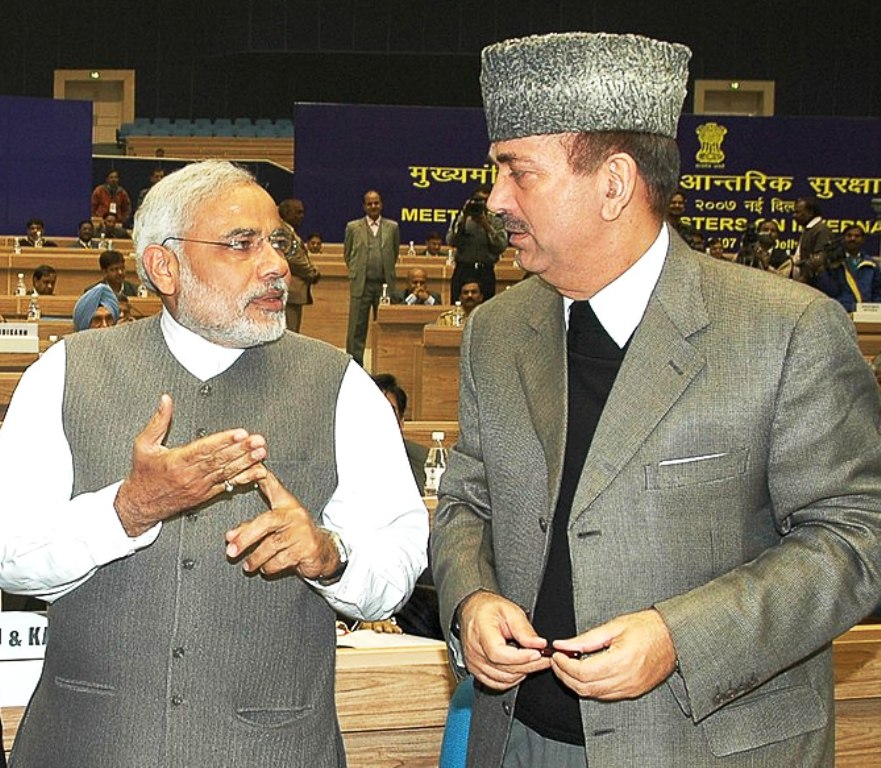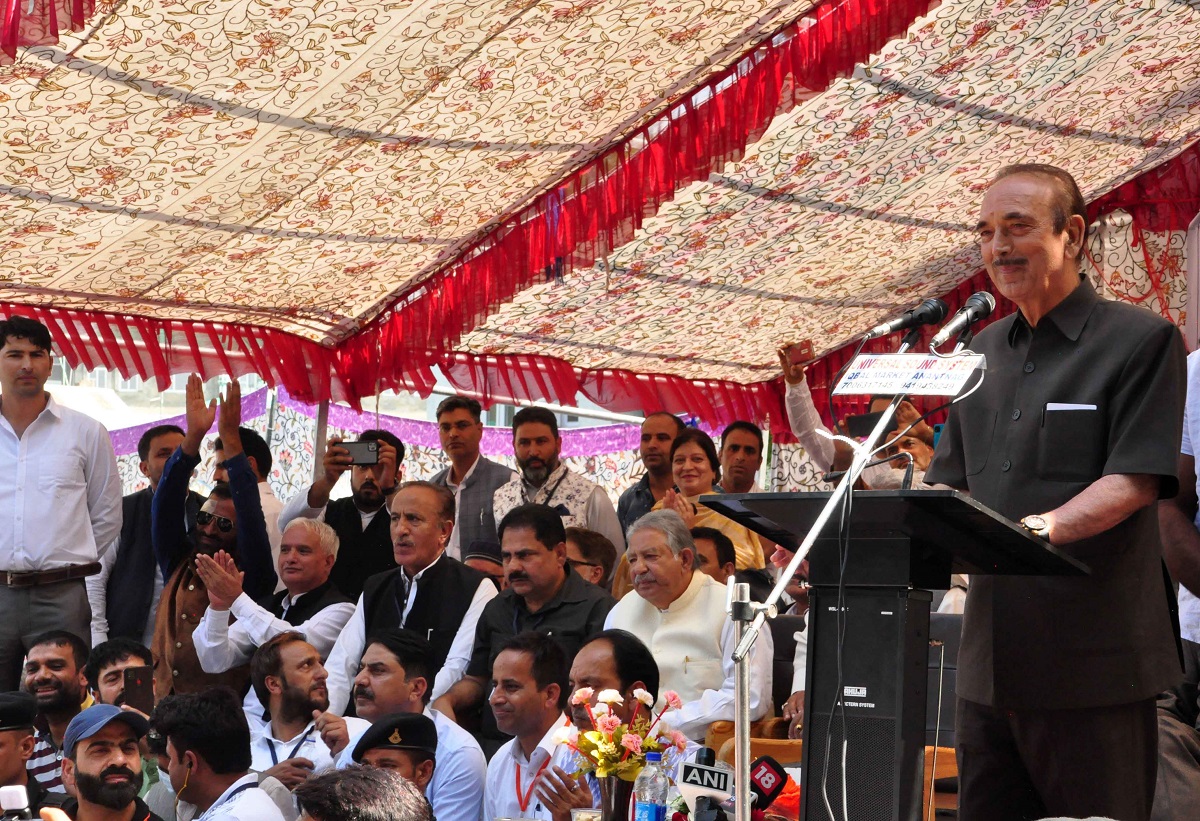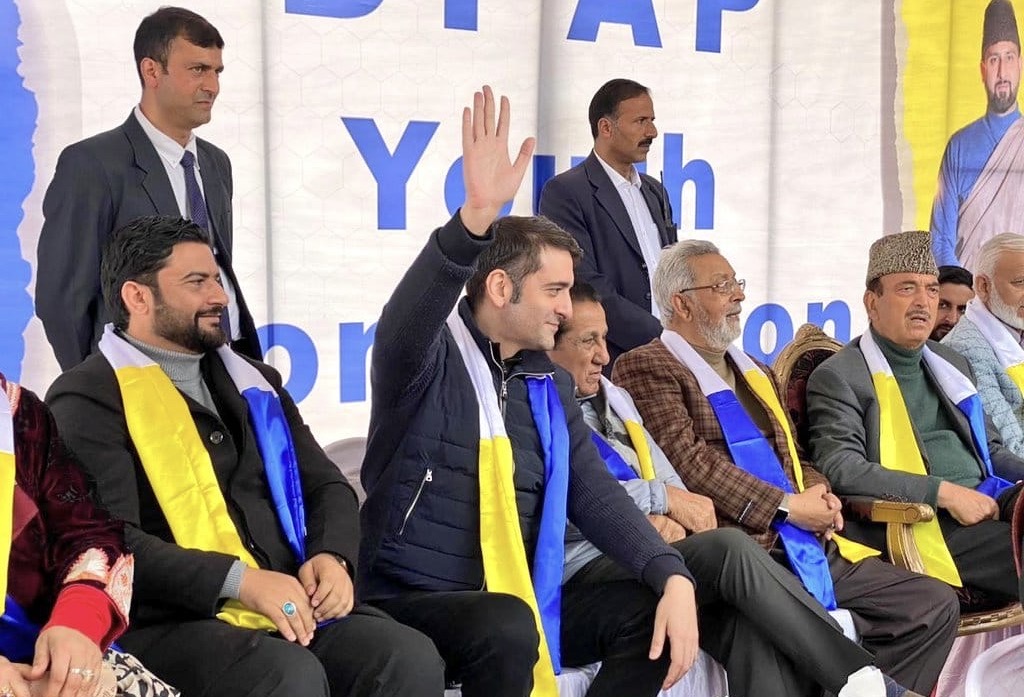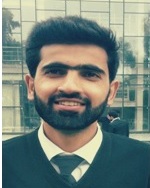by Nasir Khuehami and Ummar Jamal
The emergence of Azad’s new political party raises a pivotal question in Kashmir’s political landscape: what impact will Azad’s electoral debut have on the region’s dynamics in the upcoming Jammu and Kashmir elections?

On August 26, 2022, the seasoned Congress leader Ghulam Nabi Azad resigned, accompanied by pointed criticisms directed at the Gandhis and the organisational leadership. Citing the sidelining of senior leaders and the growing influence of an “inexperienced coterie of sycophants” as primary reasons for his departure, Azad severed his ties with the party. Later, on September 26, 2022, Azad concluded his five-decade-long association with the grand old party by launching his political entity.
The emergence of Azad’s new political party raises a pivotal question in Kashmir’s political landscape: what impact will Azad’s electoral debut have on the region’s dynamics in the upcoming Jammu and Kashmir elections?
Political analysts attribute the irreparable rupture between Azad and the Congress to denying an extension in the Rajya Sabha, the Upper House, in 2021. Notably, Prime Minister Narendra Modi’s laudatory remarks during Azad’s farewell in the Rajya Sabha in 2021 added a layer of complexity to the situation, prompting raised eyebrows and speculation about shifting alliances.
Notable milestones have marked Azad’s political trajectory. Rising to the position of Union Minister at the age of 33, serving as the Chief Minister of Jammu and Kashmir, and accumulating a two-term tenure in the Lok Sabha and five-term membership in the Rajya Sabha, Azad has also held roles as the former Leader of the Opposition (LoP) and a member of the Congress Working Committee (CWC).
After launching his new political venture, Azad articulated his party’s distinct vision. He asserted that his party would not engage in competition with other political entities but would instead concentrate on “strengthening” peace and normalcy in Jammu and Kashmir. Emphasising his commitment to secular principles, Azad affirmed that his party would refrain from discriminating against individuals based on their religion or region.
Regarding Article 370, Azad clarified that the restoration of special status is improbable, and he intends to refrain from misleading the public, differentiating his stance from other political parties. He outlined the substantial parliamentary requirements for reinstating Article 370, indicating the need for approximately 350 votes in the Lok Sabha and 175 votes in the Rajya Sabha—a threshold beyond the reach of any existing or foreseeable political entity. Azad acknowledged the diminished representation of Congress in the Lok Sabha, with fewer than 50 seats, and conceded his limited ability to motivate or influence the Prime Minister and Home Minister. Stressing his lack of sway over Modi and Shah, he emphasised that individuals possessing such influence should take up the task.

Analysing Azad’s re-entry into Jammu and Kashmir politics, Political analyst Zafar Choudhary underscored Azad’s extensive legislative experience spanning 43 years and his significant national political roles—from the Lok Sabha to the Rajya Sabha and as Leader of the Opposition. Choudhary highlighted the rarity and difficulty of sustaining such a lengthy national political career within a single party, emphasising Azad’s elevated stature and broad social base across Jammu and Kashmir, transcending divisions of caste, religion, region, and communal affiliations. He concluded that Azad’s impact on Jammu and Kashmir politics is substantial, citing his widespread influence from Kathua to Kupwara.
Choudhary noted Azad’s positive reception during his tenure as Chief Minister from 2005 to 2008, particularly in the Jammu region. While predicting potential support from the Muslim-majority Kashmir, analysts cautioned that Azad’s stance on Article 370 might not resonate well in the Kashmir Valley, potentially affecting his party’s electoral prospects. Some politicians allege that Azad, with purported blessings from the Prime Minister, aims to fragment the secular vote bank for the BJP’s broader gains. However, analysts suggest that this may not significantly impact the Muslim vote bank, particularly in the Chenab and Pir-Panchal Region.
While there have been reports and speculations about leaders and former MLAs from other parties potentially joining Ghulam Nabi Azad’s newly launched political entity, as of now, no notable defections have occurred. However, the timing of Azad’s party launch has left the people of Jammu and Kashmir sceptical, as it appears to lack resonance. Anticipation had arisen for political leaders and parties to emerge after the abrogation of Article 370, creating a void that remained unfulfilled at the national level.
Political observers critique Azad’s stance on Article 370, noting a perceived compromise on the core issue. Despite advocating for job security and land rights—issues the ruling party has already acknowledged and promised in parliament—Azad remains silent on the restoration of Article 370.

Analysts predict that Azad’s entry into Kashmir may diminish the influence of regional parties, especially the NC and PDP in Muslim-majority areas of Jammu. Additionally, the “Azad factor” in Jammu could fragment the vote share among various parties, potentially benefiting the BJP. However, Azad’s decision-making is criticised for its haste, reflecting a lack of awareness regarding the transformed ground realities in Kashmir. The distinction between national politics in Delhi and understanding the on-the-ground situation in Kashmir is emphasized.
Kashmir’s major political parties, such as the NC and PDP, operate as cadre-based entities, while the People’s Conference has its base in various quarters of North Kashmir. Despite Azad’s goodwill earned during his tenure as Chief Minister and later as Union Health Minister, the dynamics of garnering support in both regions remain uncertain, leaving the outcome dependent on future developments.
Azad currently confronts substantial hurdles in securing robust support in Kashmir, and various factors contribute to this challenge. His abrupt departure from Congress and swift establishment of a new party have sparked scepticism, raising questions about the soundness of his political decisions. Azad’s ambiguous stance on Article 370, a pivotal issue in Kashmir, creates uncertainty among voters, particularly those invested in preserving the region’s special status. Despite Azad’s extensive political experience and widespread social influence, his perceived lack of clarity on crucial matters, coupled with concerns that his actions might inadvertently favour the BJP by dividing the secular vote, diminishes his electoral prospects.


Notably, the recent return of leaders to Congress rather than joining Azad’s party highlights his struggle to attract influential figures. Furthermore, Azad’s decision-making is critiqued for its perceived hastiness, raising doubts about his grasp of the evolving ground reality in Kashmir. The entrenched cadre-based structure of major regional political entities, such as the NC and PDP, poses a formidable obstacle for Azad in establishing his party as a significant player.
The key question remains whether Azad can effectively position himself and garner support from the Jammu and the Kashmir regions. Time alone will unravel the complexities of this political equation, leaving the outcome uncertain at this juncture.
(Nasir Khuehami is National Convener of J&K Students Association and Ummar Jamal is National spokesperson of J&K Students Association. Ideas are personal.)














